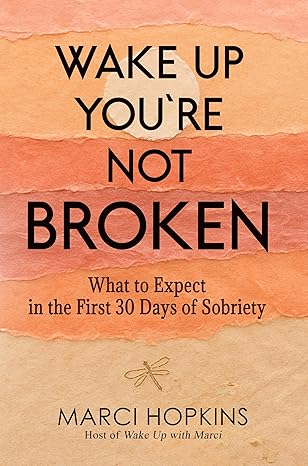Hormones play a powerful role in shaping how women feel—physically, emotionally, and mentally. From energy levels to mood swings, they influence much more than reproductive health. Understanding the connection between hormones and mental health can help women take charge of their well-being and navigate each stage of life with greater clarity and confidence.
How Hormones Affect the Mind
Hormones act like chemical messengers in the body, and when they shift, so do mood and mental health. Estrogen, for example, influences serotonin, a neurotransmitter tied to happiness and calm. Progesterone impacts sleep quality and stress response. Even small hormonal fluctuations can affect focus, energy, and emotional stability. Recognizing these shifts helps women avoid self-blame and instead see the science behind what they’re feeling.
The Monthly Cycle and Mood
Throughout the menstrual cycle, hormone levels rise and fall. During the follicular phase, rising estrogen often boosts energy and positivity. Ovulation brings a natural peak in confidence and motivation. But in the luteal phase, progesterone increases while estrogen drops, which can trigger irritability, fatigue, or sadness. Understanding this rhythm allows women to anticipate changes and practice more compassion toward themselves.
PMS and PMDD: More Than Moodiness
Premenstrual Syndrome (PMS) is widely recognized, but its more intense counterpart, Premenstrual Dysphoric Disorder (PMDD), can be overwhelming. PMDD involves severe mood swings, depression, or anxiety that disrupt daily life. While lifestyle changes can help, PMDD may also require professional support. Talking openly about these conditions helps break stigma and encourages women to seek the help they need rather than pushing through in silence.
Hormones Through the Stages of Life
Hormonal changes don’t stop with monthly cycles. Puberty, pregnancy, postpartum recovery, and menopause each bring unique shifts that can affect mental health. For instance, postpartum hormone drops may contribute to anxiety or depression. During perimenopause, fluctuating estrogen can trigger mood swings, brain fog, and sleep problems. Recognizing these stages as natural but impactful transitions helps women prepare and respond with effective coping strategies.
The Stress Connection
Chronic stress throws hormones out of balance. High cortisol levels, the body’s main stress hormone, can disrupt menstrual cycles, lower energy, and increase anxiety. Finding ways to manage stress—through mindfulness, exercise, or supportive conversations—helps restore hormonal balance. Small changes, like a consistent bedtime or short daily meditation, can make a big difference in how the body and mind respond to stress.
Nutrition and Lifestyle Support
What women eat and how they live directly influence hormonal balance. Diets rich in whole foods, lean proteins, healthy fats, and fiber support both physical and emotional health. Regular movement, from yoga to walking, regulates stress hormones and boosts endorphins. Sleep is equally essential—rest allows hormones to reset. While lifestyle adjustments can’t prevent every hormonal swing, they provide a strong foundation for stability.
Talking About It Matters
For many women, conversations about hormones and mental health feel taboo. Yet silence only increases shame and misunderstanding. Sharing experiences with friends, family, or professionals helps normalize what millions of women face every month. Platforms like Mental Health Talks with Marci encourage these honest conversations, giving women tools, validation, and a supportive community where their stories are heard.
Practical Coping Strategies
Women can use simple practices to handle the ups and downs of hormonal shifts. Tracking cycles with an app or journal helps identify patterns in mood and energy. This makes it easier to schedule demanding tasks during high-energy phases and allow rest during lower-energy times. Mindfulness, gentle movement, and balanced meals also support resilience. And when symptoms feel overwhelming, reaching out for professional guidance is a sign of strength, not weakness.
The Role of Self-Compassion
Above all, women need to remember they are not defined by hormonal fluctuations. Feeling irritable, tearful, or tired doesn’t mean weakness—it means the body is responding to natural changes. Practicing self-compassion, whether through affirmations, journaling, or simply allowing rest, fosters resilience. Women who treat themselves with kindness often find they can navigate challenges with greater strength and perspective.
Final Thoughts
Hormones and mental health are deeply interconnected, shaping the way women think, feel, and live. By learning to recognize patterns, manage stress, and lean on supportive communities, women can handle the impact of hormonal changes with more ease. Education and open dialogue are powerful tools in breaking down stigma and replacing confusion with clarity.
Wake Up with Marci continues to highlight Mental Health Talks, offering women encouragement, strategies, and inspiring stories to help them thrive through every stage of life. With knowledge, compassion, and support, women can embrace both their cycles and their strength—building a healthier relationship with their bodies and minds.
FAQs
1. Can hormones really affect mental health?
Yes, hormonal changes can influence mood, energy, and emotional balance by interacting with brain chemicals like serotonin.
2. Is it normal to feel more emotional before a period?
Yes, hormone fluctuations in the luteal phase can trigger mood changes, often described as PMS.
3. How can I support my mental health during hormonal changes?
Tracking cycles, practicing stress management, and seeking professional help when needed are effective strategies.



